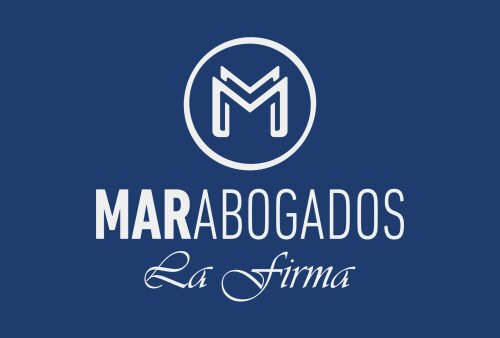Best Real Estate Due Diligence Lawyers in Las Palmas de Gran Canaria
Share your needs with us, get contacted by law firms.
Free. Takes 2 min.
Free Guide to Hiring a Real Estate Lawyer
List of the best lawyers in Las Palmas de Gran Canaria, Spain
About Real Estate Due Diligence Law in Las Palmas de Gran Canaria, Spain
Real estate due diligence in Las Palmas de Gran Canaria is a vital legal process for anyone looking to purchase, sell, or invest in property in this part of Spain. Due diligence is the comprehensive investigation and analysis of a property's physical, financial, and legal condition before completing a transaction. In this market, due diligence helps buyers avoid unexpected legal issues, fraud, and future disputes by ensuring clear title, compliance with urban planning, and verification of debts or encumbrances that could affect ownership.
Las Palmas de Gran Canaria, the largest city of the Canary Islands, operates under the Spanish legal system which is shaped by both national and regional regulations. Because the city is a popular destination for residents and foreign investors alike, the real estate market here is especially dynamic, making thorough due diligence even more important before closing any deal.
Why You May Need a Lawyer
Legal assistance is strongly recommended when dealing with real estate transactions in Las Palmas de Gran Canaria for several reasons. Common scenarios in which a lawyer's expertise is valuable include:
- Purchasing residential or commercial property, especially as a non-resident or foreign investor.
- Dealing with inheritance or succession issues for property in the Canary Islands.
- Uncovering unresolved debts, mortgages, charges, or legal claims affecting a property.
- Ensuring that the property meets local urban and zoning regulations.
- Drafting or reviewing purchase agreements and other contracts to protect your interests.
- Identifying frauds, misrepresentations, or hidden defects in the property.
- Resolving boundary disputes or issues with community property, especially in apartment buildings or complex developments.
Lawyers provide essential guidance, oversee all documentation, and carry out necessary checks to protect their clients throughout the real estate transaction process.
Local Laws Overview
Several local laws and regulations affect real estate due diligence in Las Palmas de Gran Canaria. Key points include:
- Property Registry: All real estate in Spain must be registered with the Land Registry (Registro de la Propiedad), which provides details about ownership, boundaries, and any encumbrances.
- Urban Planning Regulations: The City Council and the Canary Islands Government enforce urban licensing, zoning, and building codes. Properties must comply with local development plans.
- Community of Owners (Comunidad de Propietarios): Apartments or properties in shared developments are governed by strict statutes, rules, and possible debts with the property community.
- Cadastral Registry: The Catastro is a separate register that deals with the fiscal and physical aspects of property. Discrepancies between the Catastro and Land Registry must be resolved before conveyance.
- Tax Liabilities: Buyers must account for taxes like the Transfer Tax (Impuesto de Transmisiones Patrimoniales), VAT (IVA, for new properties), and municipal taxes like the Plusvalía.
- Non-Resident Requirements: Foreign buyers may need special documentation, such as a NIE (foreigners’ identification number).
Failure to comply with these requirements can result in fines, delays, or legal disputes, making local legal expertise essential.
Frequently Asked Questions
What does real estate due diligence involve in Las Palmas de Gran Canaria?
Due diligence covers all legal, financial, and physical checks on a property. This includes verifying ownership, checking for mortgages or liens, reviewing permits, ensuring correct registration, and confirming no outstanding debts or disputes affect the property.
Is it mandatory to hire a lawyer for property transactions in Spain?
While not legally required, hiring a lawyer is strongly advised. Spanish real estate transactions can be complex, especially for foreigners or first-time buyers. A lawyer will protect your interests, conduct all required checks, and ensure a smooth process.
What documents are essential for due diligence?
Key documents include the Nota Simple from the Land Registry, the IBI receipt (property tax), urban planning certificates, utility bills, the Catastro record, property plans, and any community of owners’ certificates.
How can I verify that a property is free of debts or charges?
Your lawyer will obtain an updated Nota Simple from the Land Registry, which shows any mortgages, liens, or legal claims. Additionally, community of property debts and municipal charges must be checked separately.
Can foreign nationals buy property in Las Palmas de Gran Canaria?
Yes, foreign nationals can buy property in Spain. They must obtain a NIE (Número de Identificación de Extranjero) and often open a Spanish bank account for the transaction.
What taxes apply to buyers during due diligence?
Buyers typically pay the Transfer Tax (around 6 to 10 percent for existing properties), VAT (10 percent for new properties), and the Plusvalía municipal tax. Your lawyer can provide an estimation based on the transaction.
Are there any risks if I do not do proper due diligence?
Without due diligence, buyers risk buying properties with hidden debts, illegal building works, unresolved planning issues, or ownership disputes. This can result in financial losses or complex legal battles.
How long does the due diligence process take?
Due diligence usually takes a few weeks, depending on the complexity of the transaction. Foreign transactions or properties with legal issues can take longer. Your lawyer will provide a timeline.
Can the due diligence identify fraud or scams?
Yes, proper due diligence can help identify fraudulent practices, such as forged ownership documents, unregistered properties, or sellers acting without proper authority.
What happens if irregularities are found during due diligence?
If your lawyer discovers issues, you can either renegotiate, require the seller to fix the problems, or withdraw from the transaction without penalty, depending on the contract terms.
Additional Resources
If you require more information or official guidance, the following resources can be helpful:
- Las Palmas de Gran Canaria City Council (Ayuntamiento de Las Palmas de Gran Canaria) - Urban planning and property records.
- Registro de la Propiedad (Land Registry of Las Palmas) - For verifying property titles and encumbrances.
- Dirección General del Catastro - Information on the physical and fiscal definition of properties.
- Canary Islands Bar Association (Ilustre Colegio de Abogados de Las Palmas) - For finding specialized real estate lawyers.
- Notarial services in Las Palmas de Gran Canaria - Required for formalizing property conveyance.
Your local embassy or consulate in Spain may also offer resources and a list of English-speaking lawyers familiar with real estate law in the region.
Next Steps
If you are considering any type of real estate transaction in Las Palmas de Gran Canaria, follow these steps:
- Make initial contact with an experienced real estate lawyer in the Canary Islands, preferably bilingual if you are not a Spanish speaker.
- Compile all available information and documents about the property you are interested in.
- Discuss your goals and any concerns with your lawyer, who will chart a due diligence plan.
- Let your lawyer handle communication with sellers, agents, and authorities to request records, register contracts, and review tax or planning matters.
- Do not sign any binding documents or pay any deposits until legal checks have been completed and you have been properly advised on the results.
Professional legal help will ensure your real estate transaction in Las Palmas de Gran Canaria is secure, transparent, and compliant with all local laws.
Lawzana helps you find the best lawyers and law firms in Las Palmas de Gran Canaria through a curated and pre-screened list of qualified legal professionals. Our platform offers rankings and detailed profiles of attorneys and law firms, allowing you to compare based on practice areas, including Real Estate Due Diligence, experience, and client feedback.
Each profile includes a description of the firm's areas of practice, client reviews, team members and partners, year of establishment, spoken languages, office locations, contact information, social media presence, and any published articles or resources. Most firms on our platform speak English and are experienced in both local and international legal matters.
Get a quote from top-rated law firms in Las Palmas de Gran Canaria, Spain — quickly, securely, and without unnecessary hassle.
Disclaimer:
The information provided on this page is for general informational purposes only and does not constitute legal advice. While we strive to ensure the accuracy and relevance of the content, legal information may change over time, and interpretations of the law can vary. You should always consult with a qualified legal professional for advice specific to your situation.
We disclaim all liability for actions taken or not taken based on the content of this page. If you believe any information is incorrect or outdated, please contact us, and we will review and update it where appropriate.









